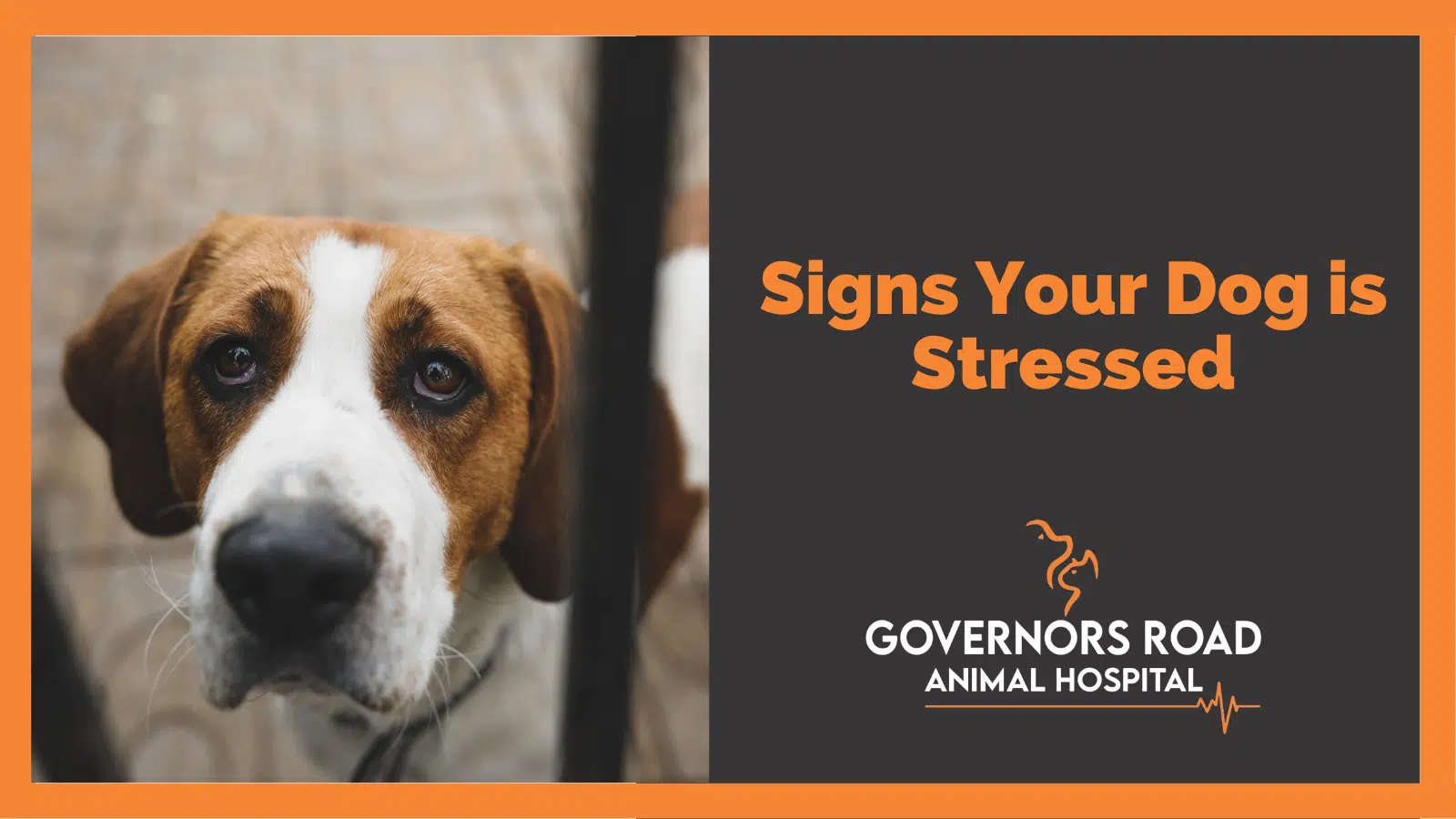
20 Jan Signs Your Dog is Stressed
It’s no secret that our dogs are our loyal companions and best friends, but even the most well-trained and loving dog can become stressed. Stress in dogs can manifest in various ways, from physical symptoms such as drooling and panting to behavioural changes like hiding and whining.
As pet owners, we must be aware of the signs of stress in our dogs to take the necessary steps to ensure their well-being. Understanding the causes and symptoms of anxiety in dogs is the first step in providing the best care for our furry friends.
In this post, we will explore some of the most common signs of stress in dogs and provide tips on how to help your stressed dog.
Signs Your Dog is Stressed
Drooling and Panting
Dogs will often drool and pant when they are anxious or stressed. This is because the body’s “fight or flight” response is activated, which increases the heart rate and blood flow to the muscles. If your dog is drooling or panting excessively, it is essential to take note and try to identify the cause of the stress.
Shedding
Dogs will also shed more than usual when they are stressed. This happens because the body produces more cortisol when stressed, resulting in shedding. If your dog is shedding more than usual, take them to a vet clinic in Dundas to examine and diagnose the condition.
Hiding
Dogs will often hide or escape when they are feeling anxious or stressed. This is because they seek a safe and secure place to retreat. Hiding can manifest differently; your dog may hide under furniture, in their crate, or a specific room. Some dogs may hide behind you or cling to you to seek protection.
Hiding can also signify a specific event that has caused stress, such as fireworks, thunderstorms, or visitors coming over. It can also indicate an ongoing issue, such as separation anxiety or fear of particular objects or people.
Panting
Panting is another common sign of stress in dogs. This is because panting helps to cool down the body and regulate the dog’s temperature. If your dog is panting excessively, it is essential to take note and try to identify the cause of the stress.
Whining or Barking
Stressed dogs often whine or bark to communicate their distress to their owner. Many factors can trigger this behaviour, including changes in their environment, new people or animals, or even their routine.
Also, whining can be a sign of discomfort, pain, or feeling of insecurity. And barking can be a sign of fear, anxiety, or frustration. For example, if your dog barks at strangers or makes loud noises, it may signify fear or anxiety. And it may represent separation anxiety if your dog barks when you leave the house.
Changes in Eyes and Ears
Dogs often have changes in their eyes and ears when anxious or stressed. This is because their pupils will dilate, and their ears will stand up when they are alert and ready to take action. If your dog’s eyes or ears behave differently, you should take them to a veterinary clinic for a proper diagnosis.
Pacing
Dogs will often pace when they are anxious or stressed. This is because they are trying to expend energy and calm themselves down. If your dog is pacing more than usual, it is vital to identify the cause of the stress.
How to Calm Down Your Stressed Dog
If you have identified the cause of your dog’s stress, it is crucial to take action to help them.
Some ways to calm down your stressed dog include:
- Providing a safe and secure environment for your dog to retreat to
- Giving your dog plenty of exercise and playtime
- Training your dog to help them feel more confident
- Consulting a veterinarian or animal hospital in Dundas or nearby areas
- Using natural remedies or supplements to help relax your dog
As you can see, stress and anxiety in dogs can manifest in a variety of ways, and pet owners need to be aware of the signs so they can take action to help their furry friend. If you notice any of the symptoms of stress in your dog, make sure to take note and identify the cause. It is always best to contact a veterinarian or animal hospital in Dundas or nearby areas for further advice and help.



Sorry, the comment form is closed at this time.